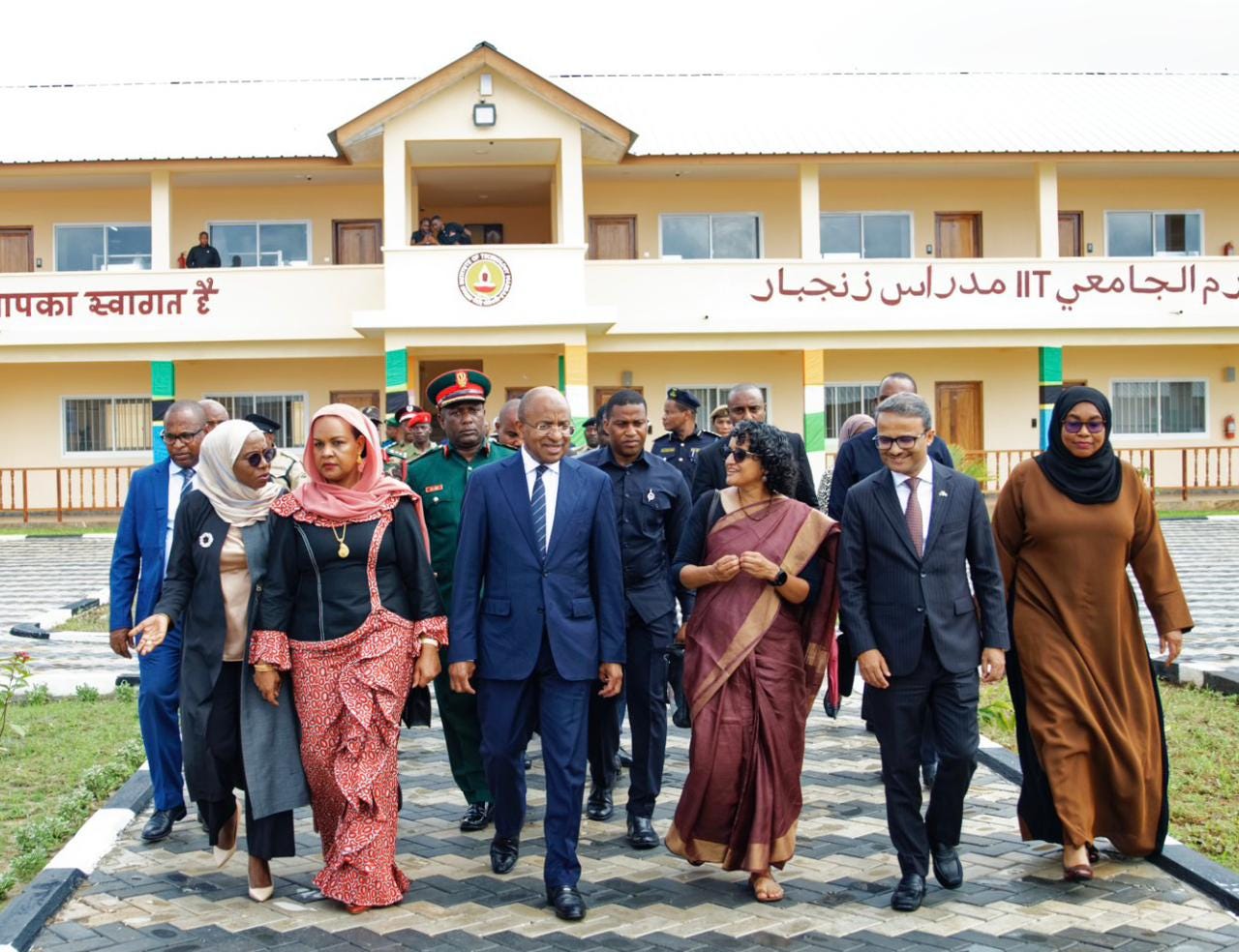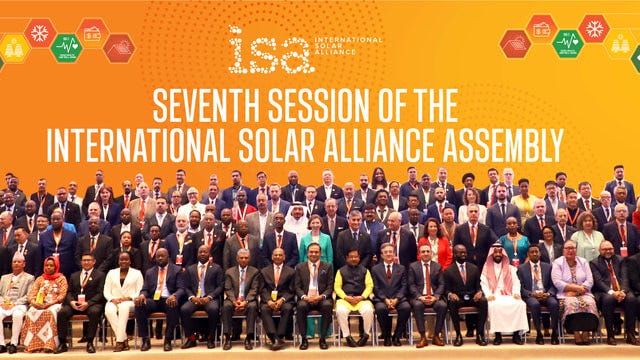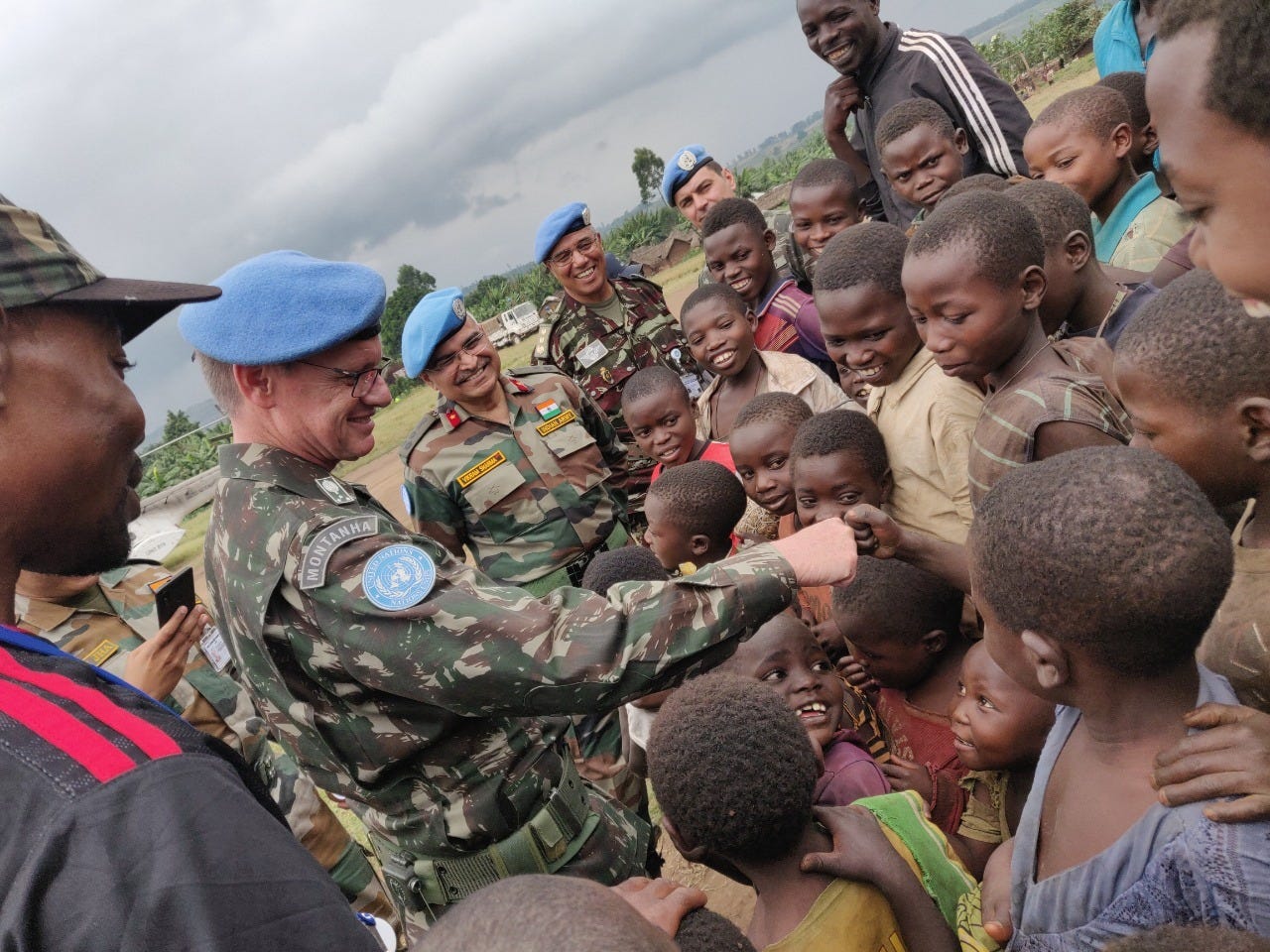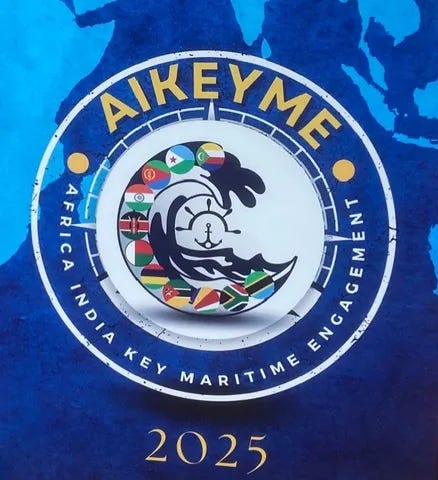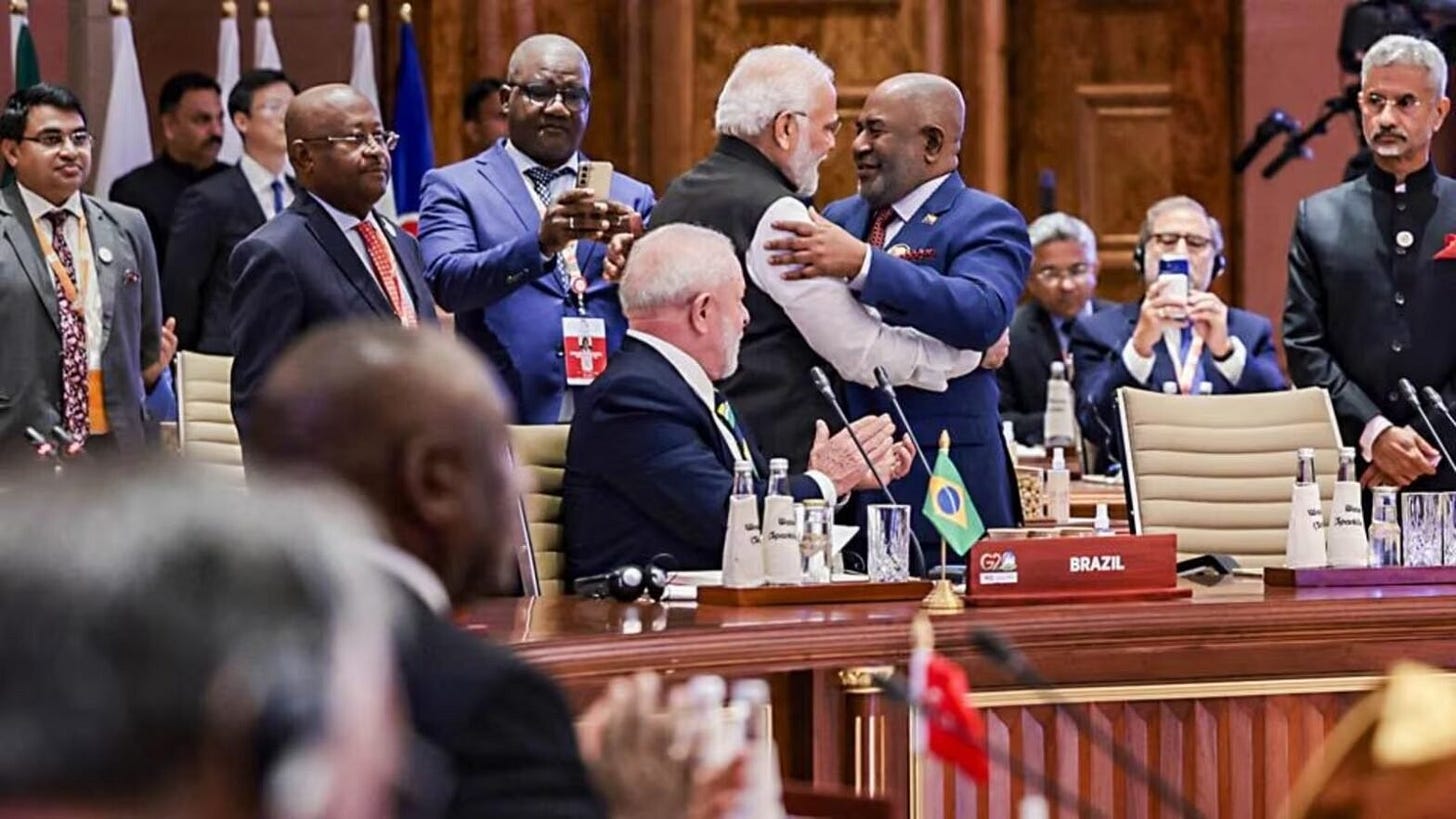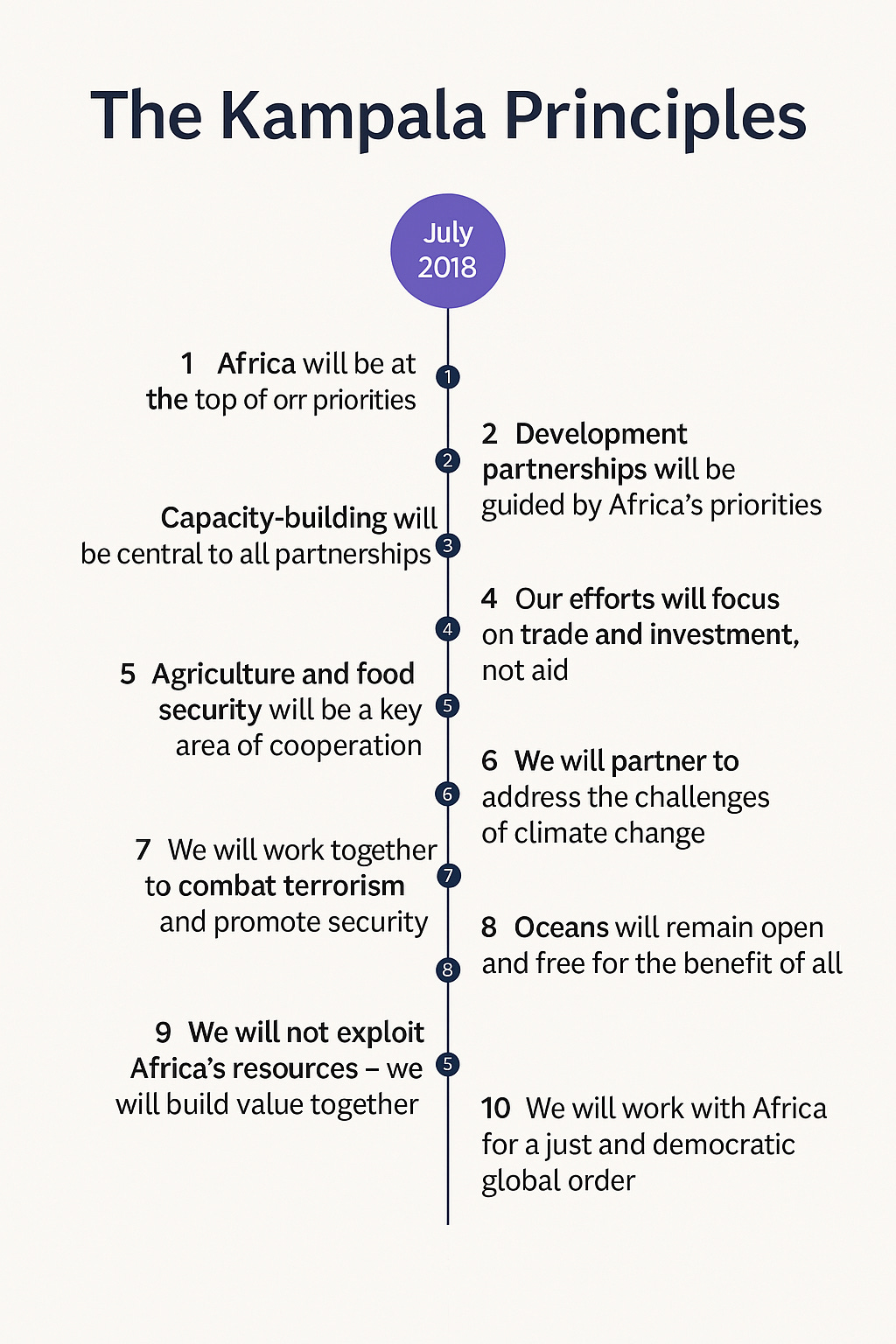The Kampala Principles: India's Vision for Partnership with Africa
“Africa will not be a theatre of rival ambitions but a nursery for the aspirations of youth.”
In July 2018, Prime Minister Narendra Modi became the first Indian leader to address the Parliament of Uganda—and the first Indian Prime Minister to address the legislature of any African nation.
Standing in Kampala, the Ugandan capital, he laid out a set of 10 principles to guide India’s relationship with Africa in the 21st century.
These weren’t abstract declarations.
They were a well-thought-out roadmap for a more equal, respectful, and mutually beneficial partnership between India and the African continent.
The speech and the principles that followed became known as the Kampala Principles.
While this label wasn’t officially coined in the speech itself, it caught on because it clearly captured the spirit of the moment—one that sought to redefine the India-Africa equation.
And here's why it matters: In a world where global powers often compete for influence in Africa—sometimes bringing more problems than solutions—India positioned itself as a development partner rather than a donor or power player.
The Kampala Principles set India apart by emphasizing cooperation, mutual growth, and long-term partnership based on trust.
So, let’s dive into what these ten principles are, why they’re significant, and how they could shape the future of India-Africa relations.
For many decades, Africa wasn’t at the center of Indian foreign policy in practice, even though the two had long-standing historical and cultural ties.
This principle marked a shift. It acknowledged that India had to step up—show up more often, invest more resources, and forge deeper ties, especially as African nations were becoming more assertive and influential in global affairs.
In the five years following the 2018 speech, India hosted over 40 African heads of state across multiple high-level forums and summits.
Embassies were opened or reopened in countries where India previously had no diplomatic presence. This signaled that the commitment wasn’t just rhetoric—it was being backed up by real action.
One of the criticisms often directed at large foreign investors or donors in Africa is that their projects tend to reflect their own interests—not those of the host country. India sought to flip that script.
Whether it’s building a rural electrification project in Malawi, an IT training center in Ghana, or water treatment plants in Tanzania—India has emphasized that its role is to support, not dictate.
More than 180 lines of credit have been extended to over 40 African countries since 2005, totaling over $11 billion.
These are tailored to each country’s development goals, from infrastructure to healthcare to agriculture.
The idea is simple: Africa leads, India supports.
Instead of sending hundreds of Indian workers overseas to execute projects, India often trains local professionals and builds institutional capacity.
The Indian Technical and Economic Cooperation (ITEC) program, which has existed since 1964, offers fully-funded courses for African students and government officials across a wide range of fields—engineering, banking, agriculture, public health, and more.
Over 50,000 African nationals have benefited from such programs in the last decade alone.
The goal? Empower African nations to run and sustain their own systems long after the projects are complete.
India has stayed away from the "aid" narrative that dominates the West's engagement in Africa. It prefers the term "development cooperation" and backs it up by encouraging Indian businesses to invest directly in African markets.
Indian companies like Bharti Airtel (in telecom), Godrej (in FMCG), and Mahindra (in auto and agri equipment) have long-established operations in countries like Kenya, Nigeria, and South Africa.

Indian pharma firms supply over 25% of Africa’s generic medicines, making life-saving drugs accessible and affordable.
In 2022–23, India-Africa bilateral trade crossed $98 billion, up from $51 billion in 2010. The goal is to hit $150 billion in the next few years.
Africa has about 60% of the world’s uncultivated arable land but accounts for less than 10% of global food production. This gap represents not just a challenge—but a massive opportunity.
India’s agricultural model—low-cost, high-yield, and smallholder-friendly—resonates with many African nations facing similar conditions.
India has provided training, machinery, seeds, and irrigation support in countries like Mozambique, Senegal, and Ethiopia.
Initiatives like the Pan-African e-Network have also enabled Indian agricultural universities to deliver remote training to African students and agri-entrepreneurs.
India is one of the few major economies that is on track to meet its Paris Climate Agreement targets.
Through the International Solar Alliance (ISA)—an initiative India launched with France—India has invited over 30 African countries to collaborate on expanding solar energy infrastructure.
From supplying solar kits to remote villages to training technicians in solar installation, the focus is on building clean energy systems that are scalable and locally managed.
India has also committed over $2 billion in concessional finance for clean energy projects across Africa.
India’s experience in dealing with terrorism and insurgency has positioned it as a valuable partner for African nations facing similar challenges—especially in the Sahel, the Horn of Africa, and parts of West Africa.
India has trained African police, intelligence officials, and peacekeepers under various security cooperation agreements. Over 6,000 Indian peacekeepers have served in UN missions across Africa.
In 2021, India hosted the first-ever India-Africa Defence Ministers’ Conclave to discuss collective security and military cooperation.
Maritime trade is vital to both India and Africa. Ports like Mombasa, Dar es Salaam, and Durban are gateways for regional trade, while India's western coast is a launchpad for commerce with East Africa.
India has ramped up cooperation with countries like Seychelles, Mauritius, and Mozambique to monitor sea lanes, fight piracy, and ensure open navigation in the Indian Ocean.
The Indian Navy has also participated in joint patrols and training missions with African counterparts, reinforcing the idea of shared maritime responsibility.
This one is significant. Africa has long suffered from being treated as a resource hub—where raw materials are extracted, exported, and processed elsewhere.
India has taken a different approach. It has encouraged Indian businesses to invest in processing and manufacturing locally.
For example, Indian companies in Ethiopia and Kenya have invested in textile units and pharma plants that generate local jobs and retain value within the economy.
PM Modi emphasized in his Kampala speech: “Africa will not be a theatre of rival ambitions but a nursery for the aspirations of youth.”
India has consistently supported reforms in global institutions like the United Nations Security Council, the IMF, and the World Bank. It believes these institutions don’t reflect today’s geopolitical realities—and that Africa deserves a stronger voice.
India’s advocacy for the inclusion of the African Union as a permanent member of the G20 (which happened in 2023) was a direct extension of this principle.
Together, India and Africa represent over 2.5 billion people. That’s not just a demographic strength—it’s political leverage, and India wants to use that collective voice to push for more inclusive global decision-making.
The Kampala Principles aren’t just about diplomacy.
They reflect a shift in mindset. India’s message to Africa is clear: "We’re in this together."
It’s also strategic. As the West’s engagement with Africa fluctuates and China’s footprint becomes more controversial, India has found a niche—offering long-term, people-centric partnerships that respect sovereignty and build capabilities.
Sure, India doesn’t have the financial muscle of China or the institutional dominance of the West, but what it does have is goodwill, cultural familiarity, and a reputation for being a non-intrusive partner.
And that might just be the most valuable currency in global development.
The Kampala Principles offer a glimpse of what 21st-century international cooperation could look like—less about power, more about partnership. Less about aid, more about agency.
The real challenge now is implementation. Can India continue to scale its presence in Africa while maintaining its values?
Can it manage expectations, deliver results, and stay true to its promise of “partnership, not patronage”?
More importantly—can this model inspire a new way of thinking about global cooperation?
Thanks for reading Africa Unfiltered! This post is public so feel free to share it.
